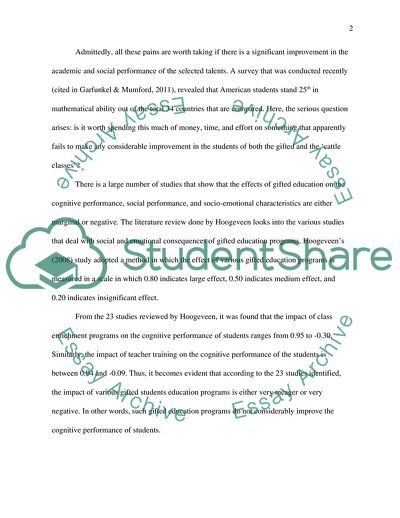Cite this document
(Gifted Education Programs Literature review Example | Topics and Well Written Essays - 1250 words, n.d.)
Gifted Education Programs Literature review Example | Topics and Well Written Essays - 1250 words. https://studentshare.org/education/1764540-gifted-education-programs-for-highly-talented-andor-intelligent-children-are-an-inefficient-financial-drain-on-public-schools
Gifted Education Programs Literature review Example | Topics and Well Written Essays - 1250 words. https://studentshare.org/education/1764540-gifted-education-programs-for-highly-talented-andor-intelligent-children-are-an-inefficient-financial-drain-on-public-schools
(Gifted Education Programs Literature Review Example | Topics and Well Written Essays - 1250 Words)
Gifted Education Programs Literature Review Example | Topics and Well Written Essays - 1250 Words. https://studentshare.org/education/1764540-gifted-education-programs-for-highly-talented-andor-intelligent-children-are-an-inefficient-financial-drain-on-public-schools.
Gifted Education Programs Literature Review Example | Topics and Well Written Essays - 1250 Words. https://studentshare.org/education/1764540-gifted-education-programs-for-highly-talented-andor-intelligent-children-are-an-inefficient-financial-drain-on-public-schools.
“Gifted Education Programs Literature Review Example | Topics and Well Written Essays - 1250 Words”. https://studentshare.org/education/1764540-gifted-education-programs-for-highly-talented-andor-intelligent-children-are-an-inefficient-financial-drain-on-public-schools.


